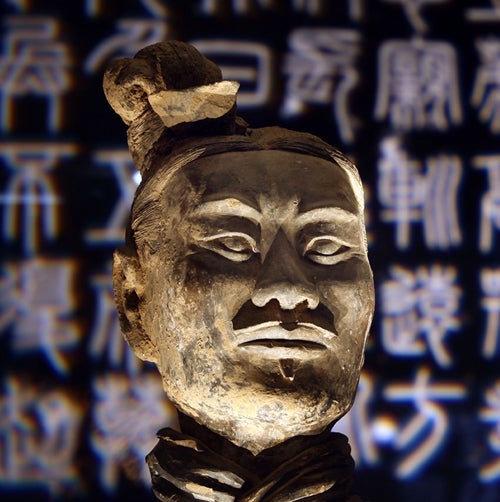
Your support helps us to tell the story
From reproductive rights to climate change to Big Tech, The Independent is on the ground when the story is developing. Whether it's investigating the financials of Elon Musk's pro-Trump PAC or producing our latest documentary, 'The A Word', which shines a light on the American women fighting for reproductive rights, we know how important it is to parse out the facts from the messaging.
At such a critical moment in US history, we need reporters on the ground. Your donation allows us to keep sending journalists to speak to both sides of the story.
The Independent is trusted by Americans across the entire political spectrum. And unlike many other quality news outlets, we choose not to lock Americans out of our reporting and analysis with paywalls. We believe quality journalism should be available to everyone, paid for by those who can afford it.
Your support makes all the difference.
What courses? Chinese; Chinese studies; Mandarin Chinese. It’s usually studied as one half of a joint honours degree.
What do you come out with? A BA or MA in Scotland.
Why do it? "China has a long, unbroken written record of its history and culture, and its importance in the modern world is increasing rapidly. Intensive study of its language and written script, along with courses on its history, economy, political structure, art, etc. is key to understanding this fascinating civilization, and serves as a basis for understanding one’s own civilization." - Dr Andrew Lo , head of Department of China and Inner Asia, The School of Oriental and African Studies, University of London
What's it about? Using a multitude of disciplines to explore one of the world’s largest, most powerful, and not to mention culturally fascinating nations, looking at its language, history, politics, religion and society as a whole. You can expect the first year at least to be spent getting you up to speed with Mandarin, as, according to the Foreign Office, it takes four times longer to pick up Chinese than it does a European language. Expect modules in culture, cinema, specific historical periods and literature. Almost all courses require you to take a year to study in China, and, unlike most universities, at Nottingham Trent this actually counts towards your final degree grade, as you study at the university’s own Ningbo campus. Once you’re back on British soil, with a greater understanding of the region, you’ll be expected to complete a dissertation or research project in your final year.
Study options: Three years full-time plus your year out in China.The year abroad isn’t compulsory at SOAS, and Westminster and Trinity Saint David also offer three-year BAs. If you’re studying as part of a joint honours it may also be an option to skip the year abroad.
What will I need to do it? Prior knowledge of Mandarin is not a requirement, but if you do have a little (or even a lot of) know-how, universities will make an effort to accommodate you. Many courses ask for a language at A-level to gage your language acquisition potential. Social sciences or humanities at A-level are also treated favourably. As with all of its subjects, Cambridge asks for A*AA for its Asian and Middle Eastern studies course, in which you can take a Chinese pathway., whereas at SOAS you’ll be needing AAB.
What are my job prospects? With the seemingly unstoppable growth of the Chinese economy and its influence over world markets, now is perhaps one of the best times to be learning the language, as well as about the culture of the region. Mandarin speakers in the world of business are in high demand, and therefore graduates could find themselves in highly-placed roles, bridging the gap between corporations’ Eastern and Western interests. Others go for work in journalism, the civil service or with NGOs and charities. Around half of students land themselves graduate-level jobs straight away, according to The Times' Good University Guide 2012, earning an average starting salary of £20,750.To get the most value out of your degree, you’ll probably have to head back to China, but that shouldn’t be a problem , as your love for the country is why you decided to do the degree in the first place, right?
Where’s best to do it? Cambridge comes top overall in the Complete University Guide for East and South Asian studies, although it only offers Chinese studies as a pathway in its Asian and Middle Eastern studies degree. In second place is Oxford, which offers Chinese as part of its classics and oriental studies programme. SOAS and Nottingham also come out well overall. Oxbridge also excels for student satisfaction.
Related degrees: African studies; Arabic and Middle Eastern studies; English; politics; anthropology; sociology.
Join our commenting forum
Join thought-provoking conversations, follow other Independent readers and see their replies
Comments